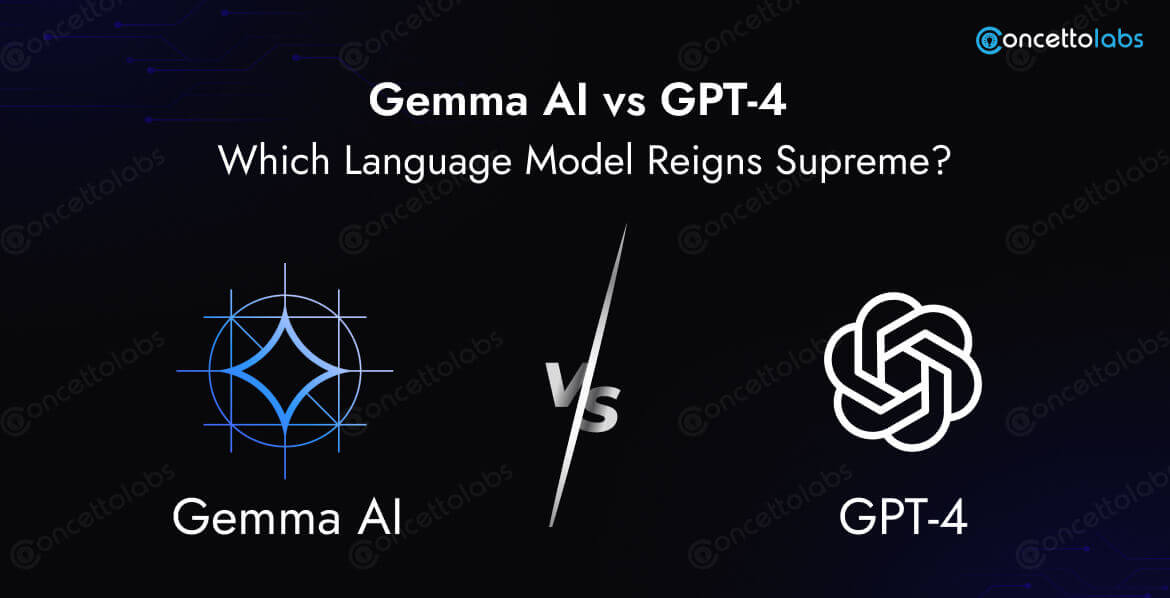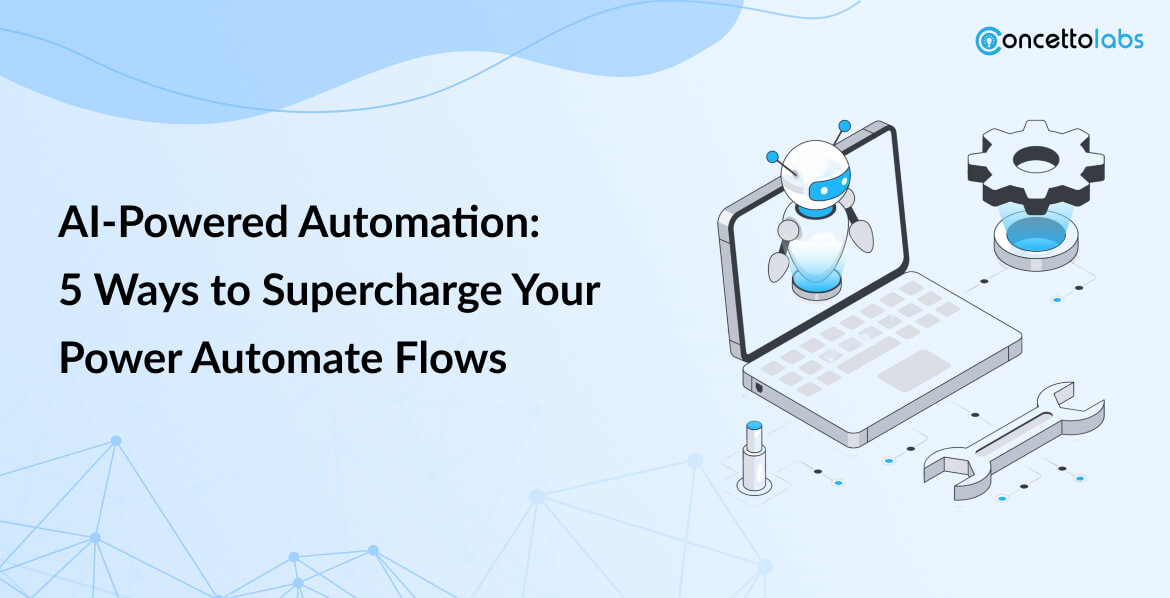
Summary: Explore the key differences between Gemma AI and GPT-4, comparing their performance, capabilities, and use cases to determine which language model leads in 2025.
The fast growth of AI has led to the creation of very powerful large language models (LLMs) that are changing the way people and machines interact. Gemma AI, made by Google DeepMind, and GPT-4, the main model from OpenAI, are two of the most popular LLMs. As more and more firms, developers, and organizations use these tools, the argument about whether one is better, or Gemma AI and GPT-4, gets louder.
We will cover everything from their main features and functions to their accuracy, speed, cost, and real-world uses in this in-depth overview. This blog will help you figure out which LLM is ideal for you, whether you’re a developer, a tech lover, or a decision-maker looking at AI possibilities.
What is Gemma AI?

Gemma AI is created from open-weight language models released by DeepMind in 2024. The core of Gemma was Google’s cutting-edge research, which included the ideas behind Gemini.
What is GPT-4?

OpenAI created GPT-4, a multimodal LLM with image and text handling capabilities. GPT-4 came out in 2023 and is used in a multitude of commercial apps, like ChatGPT, Microsoft Copilot, and Duolingo’s AI instructor. It is noted for being very big, quite accurate, and able to reason about a wide range of topics. OpenAI’s API and partners offer GPT-4, and its Pro version employs GPT-4-turbo, which is a quicker, cheaper version.
Features of Gemma AI vs GPT-4
It is evident that Gemma AI vs GPT-4 were made with different strengths in mind when you look at their main features:
1. NLP Performance of Gemma AI vs GPT-4
To do things like translation, summarization, emotion analysis, and code generation, you need to be able to interpret and create language. When comparing the NLP performance of Gemma AI and GPT-4, we learn some important things:
Gemma AI: Gemma AI does well on benchmark datasets, including MMLU, GSM8K, and HellaSwag. In core NLP tasks, the 7B model generally does better than bigger open-source models like LLaMA 2 and Mistral.
GPT-4: The best NLP tool on the market as of 2024 is GPT-4. GPT-4 always gets more than 85% on MMLU, can answer hard math and logic issues, and is better at understanding and reasoning in more than one language.
Verdict: GPT-4 is now the best choice for high-stakes NLP tasks that need subtlety and reasoning. Gemma, on the other hand, works great for lightweight apps and edge deployments.
2. Gemma AI vs GPT-4 Accuracy Comparison
Gemma AI: Even though it is small, Gemma 7B does very well on benchmarks. When tested side by side, it has better factual consistency and contextual understanding than many other models of the same size.
GPT-4: has the best accuracy since it has access to huge training datasets and is finely calibrated. It can take sarcasm, comedy, and vague directions better than anything else.
3. Speed Comparison: Gemma AI vs GPT-4
Speed is very important, especially for real-time applications like chatbots, customer service, and embedded systems.
Gemma AI: Extremely quick at drawing conclusions, particularly when using local hardware. Models may operate on Nvidia GPUs, Google Cloud TPUs, and even regular computers, which makes them great for quick answers on devices.
GPT-4: GPT-4-turbo has more advantages than the initially released GPT-4 since it reacts faster and has less delays. But it usually uses cloud infrastructure, which can cause small delays compared to models that are housed locally.
Comparing speeds Gemma AI vs. GPT-4: In the cloud, GPT-4-turbo operates incredibly quickly. Gemma’s lightweight design provides it the edge for on-device or private inference.
4. Security and Privacy: Gemma AI vs GPT-4
When using AI in healthcare, finance, law, and other sensitive areas, enterprises must think about security and privacy. This is how the models stack up:
Gemma AI: Free to use Advantage: Because Gemma is open-weight, companies can use it completely on their own infrastructure. This makes sure that you own all of your data and follow all of your company’s and the law’s data governance rules.
Customizable Filtering: Developers can add their own moderation and safety layers, which gives them greater control over how data flows and how models behave.
Private Inference: Gemma can work in air-gapped environments, which is not possible with cloud-based APIs. This makes it perfect for industries that have to follow rigorous rules like HIPAA or GDPR.
GPT-4: Strongly Follows OpenAI’s Safety Rules: OpenAI has put in place several levels of safety, such as Reinforcement Learning from Human Feedback (RLHF), adversarial testing, and limits on how often the system can be used.
Data Handling Transparency: OpenAI makes sure that data is kept private and safe, but using GPT-4 APIs means sending data to OpenAI’s servers, which could be a problem for some businesses.
Enterprise-Grade Controls: When you use GPT-4 under the Microsoft name, you get enterprise-level privacy and compliance guarantees because it is part of Microsoft Azure’s enterprise ecosystem.
In conclusion, Gemma AI gives you more control and data sovereignty, while GPT-4 keeps you safe with structured monitoring and cloud-based controls. Gemma may be the best choice for industries that need data privacy that is completely secure.
How Much Does it Cost: Gemma AI vs GPT-4?
One of the most useful inquiries is how much it costs to employ Gemma AI compared to GPT-4.
Gemma AI: Gemma AI is free and open-source. You can download the models and use them on your own computer or infrastructure without having to pay for them again. Great for new businesses and developers who need solutions that are flexible and cheap.
GPT-4: ChatGPT Pro pricing plan is $20 a month and allows you to leverage GPT-4 turbo. API use costs money for each token, which is usually less than a cent, but it can build up for big applications. The costs of hosting and computing are extremely high.
Gemma AI is the user-friendly options choice for those self-hosted usage and examining new ideas.
Why Do Developers Prefer Gemma AI or GPT-4?
Developers prefer Gemma AI when:
- They want to be able to change the model’s weights and architecture completely.
- Having transparent and open-source licensing is crucial.
- You can’t depend on cloud APIs because of budget limits.
- They need models particularly customized for performing on multiple edge devices.
When Developers like GPT-4?
- Key priorities include precision, reliability, and versatile performance across tasks.
- It needs to work with Microsoft and OpenAI technologies like ChatGPT and Copilot.
- Speed to market is critical, while infrastructure poses no significant barriers.
Who is using Gemma AI and who is using GPT-4?
Knowing who is using Gemma AI and GPT-4 might help you understand how widely they are used and how much people trust them:
Gemma AI:
- Academic institutions and researchers are exploring AI and NLP technologies.
- Open-source groups, like Hugging Face, that help with fine-tuning projects.
- Startups and enterprises that work on the edge of computing need AI models that are small and light.
GPT-4:
- Companies including Microsoft, Duolingo, Khan Academy, and Morgan Stanley.
- SaaS businesses are making apps that use AI.
- People that make chatbots, agents, and helpers for businesses
Final Decision: Gemma AI vs GPT-4 Which Rules the Industry?
It is not about which AI is better in the struggle between Gemma AI and GPT-4; it’s about the context. Both models are great at different things:
Choose Gemma AI if:
- You want to be in charge, see everything, and save money.
- You are making apps that run on devices or are private.
- You like working together on open-source projects and being able to release your code in different ways.
Choose GPT– 4:
- You need the finest performance possible for business tasks.
- It is important to have accuracy, rationale, and support for several modes.
- You are adding AI to commercial products with little effort.
What are the Future Trends of Gemma AI and GPT-4?
As the AI battle goes on, it’s crucial to think about the future and how these models are changing.
Gemma AI’s Future: More Model Sizes Are Expected. There are rumours that DeepMind is making bigger Gemma models (with 20 billion or more parameters) to compete more directly with GPT-4 and LLaMA 3.
More Multilingual Features: The current Gemma models can only handle a few languages at a time. Future versions will probably be able to handle more languages from around the world.
On-device AI Push: Google’s goal for AI on Android and Chromebooks probably includes lighter Gemma models that are better at edge intelligence.
The Future of GPT-4: GPT-5 is Being Made: OpenAI has hinted that they are working on GPT-5, which will have better long-context memory and support for several modes.
Expanded Ecosystem: More and more, GPT models are becoming the building blocks for AI agents, custom copilots, and tools that automate workflows.
Enterprise Tools: Look for stronger connections to Microsoft 365, Azure, and OpenAI’s own ChatGPT ecosystem, and maybe even new models that are unique to certain industries.
Both models are changing quickly, according to Insight. Right now, GPT-4 has more features, but Gemma’s open-source momentum and potential to grow could close the gap faster than predicted.
Conclusion
The argument over the performance of Gemma AI vs. GPT-4 will get stronger as the AI world keeps changing. There is one thing that is evident, though: both approaches have their own strengths. Your choice will rely on your use case, infrastructure, and innovation goals, whether you want something cheap, fast, or cutting-edge.
You will be better able to choose the best model for your business or project if you know the main features, NLP performance, cost, accuracy, and developer preferences of each one.
We at Concetto Labs are always on the front edge of Artificial intelligence and machine learning technology. We help organizations use the correct tools, such open-source models like Gemma AI or advanced commercial APIs like GPT-4, If you’re looking to hire chatbot developers, our experts can help you leverage the best large language models (LLMs) to create scalable, intelligent solutions tailored to your business goals.
Explore how each model fits your unique needs. Schedule a free consultation with our AI experts today!Make the Smart Choice for Your AI Strategy







 Indonesia
Indonesia
 Botswana
Botswana
 USA
USA
 Italy
Italy
 Panama
Panama




 USA
USA UK
UK Saudi Arabia
Saudi Arabia Norway
Norway India
India Australia
Australia